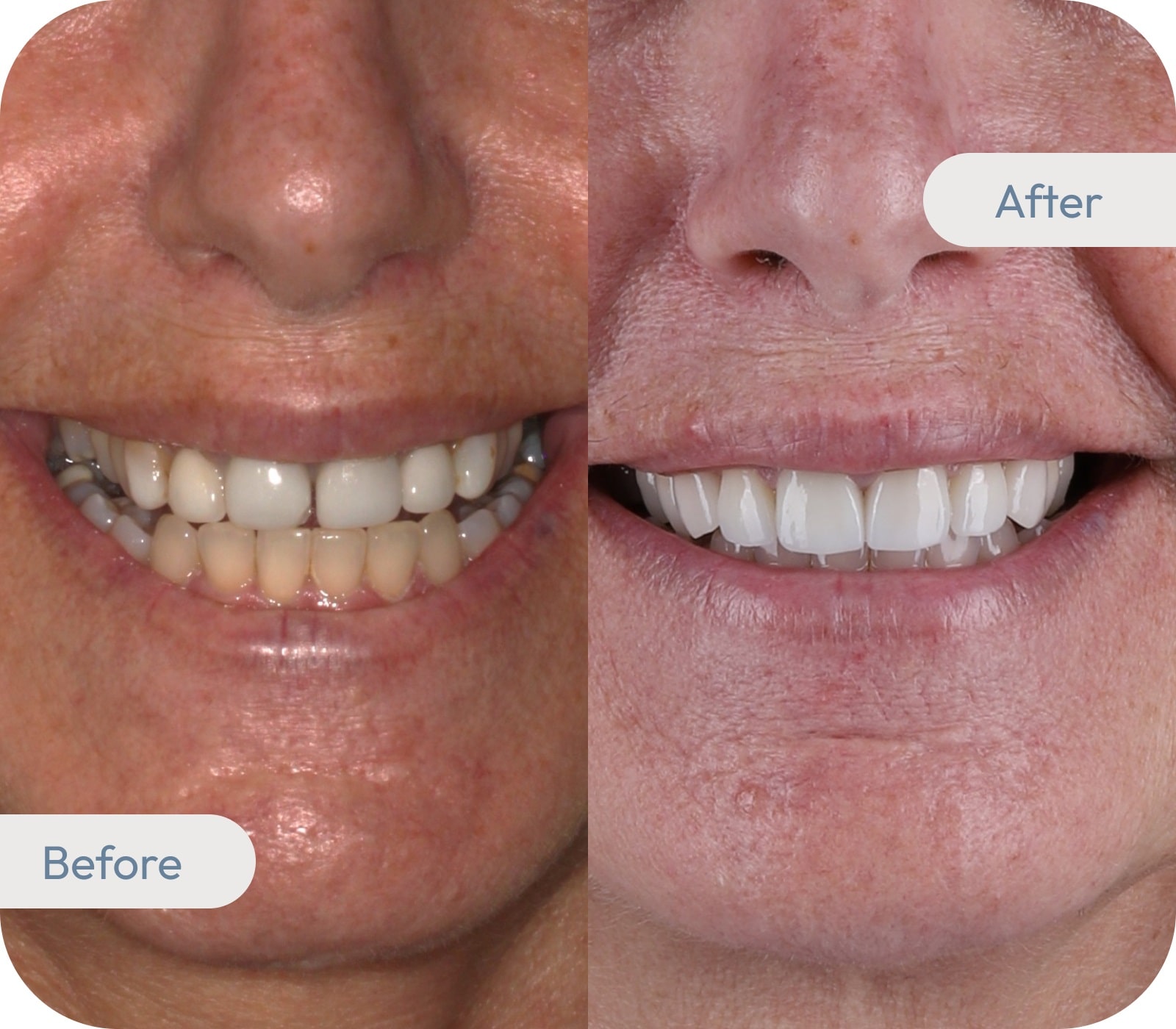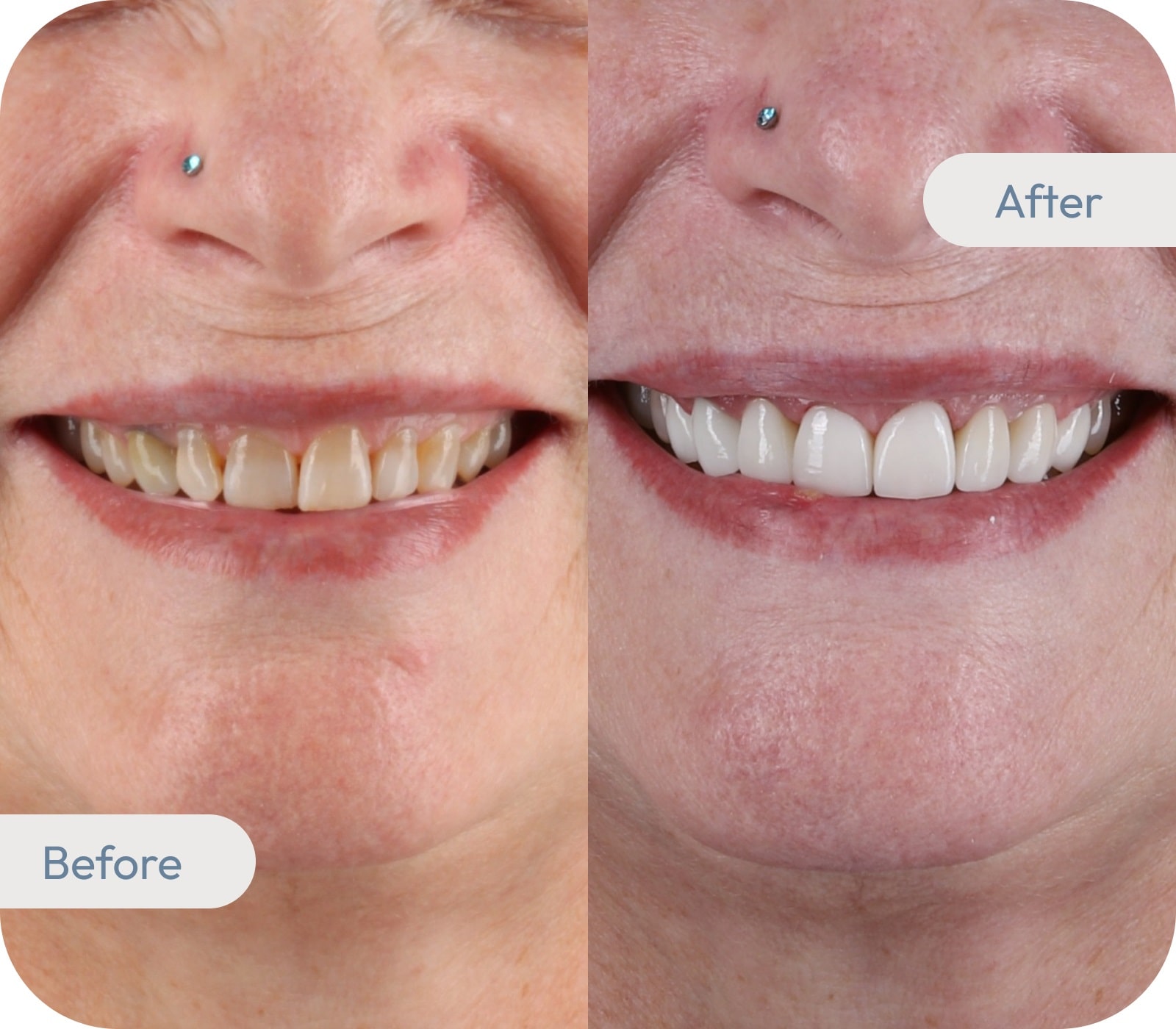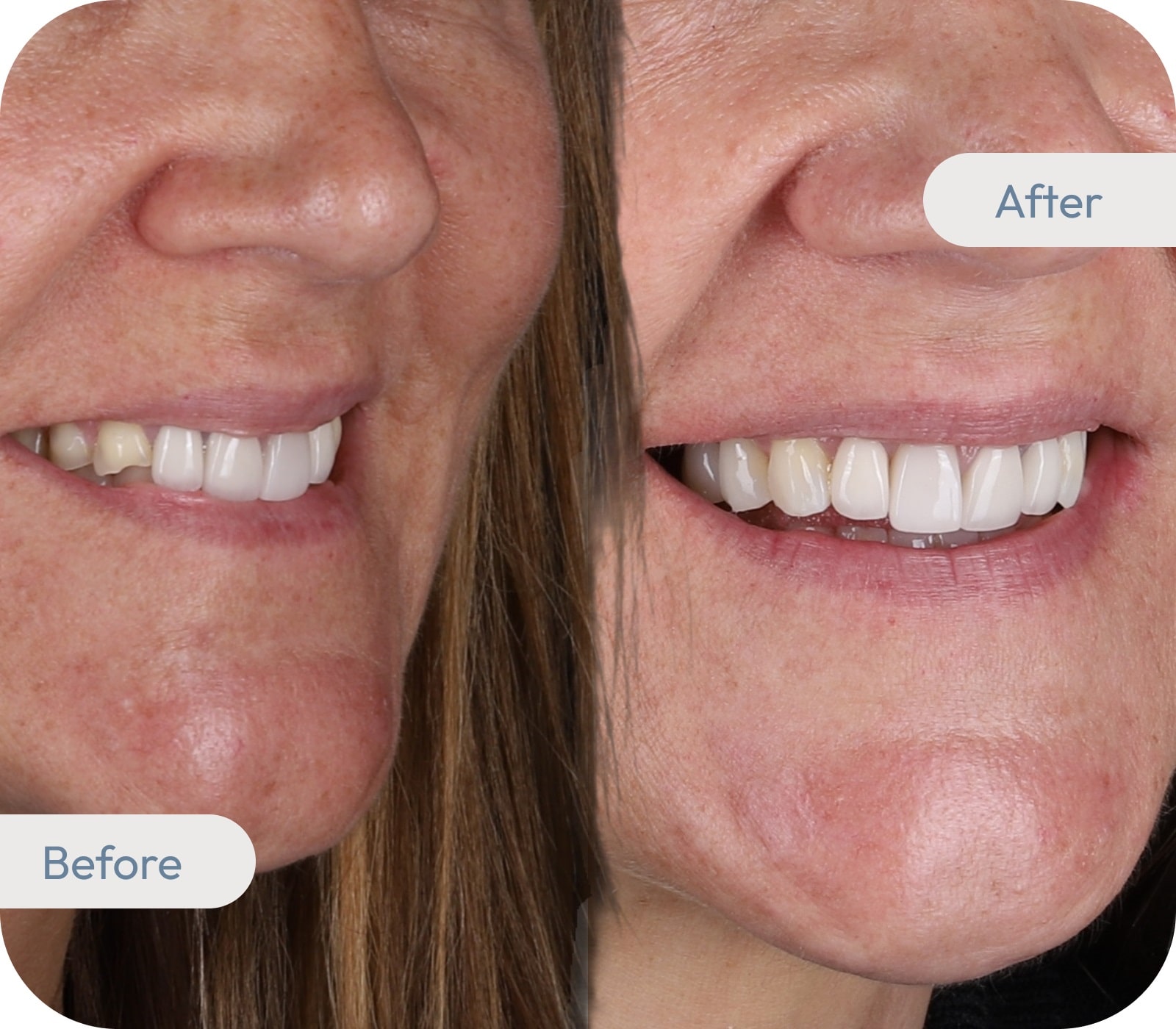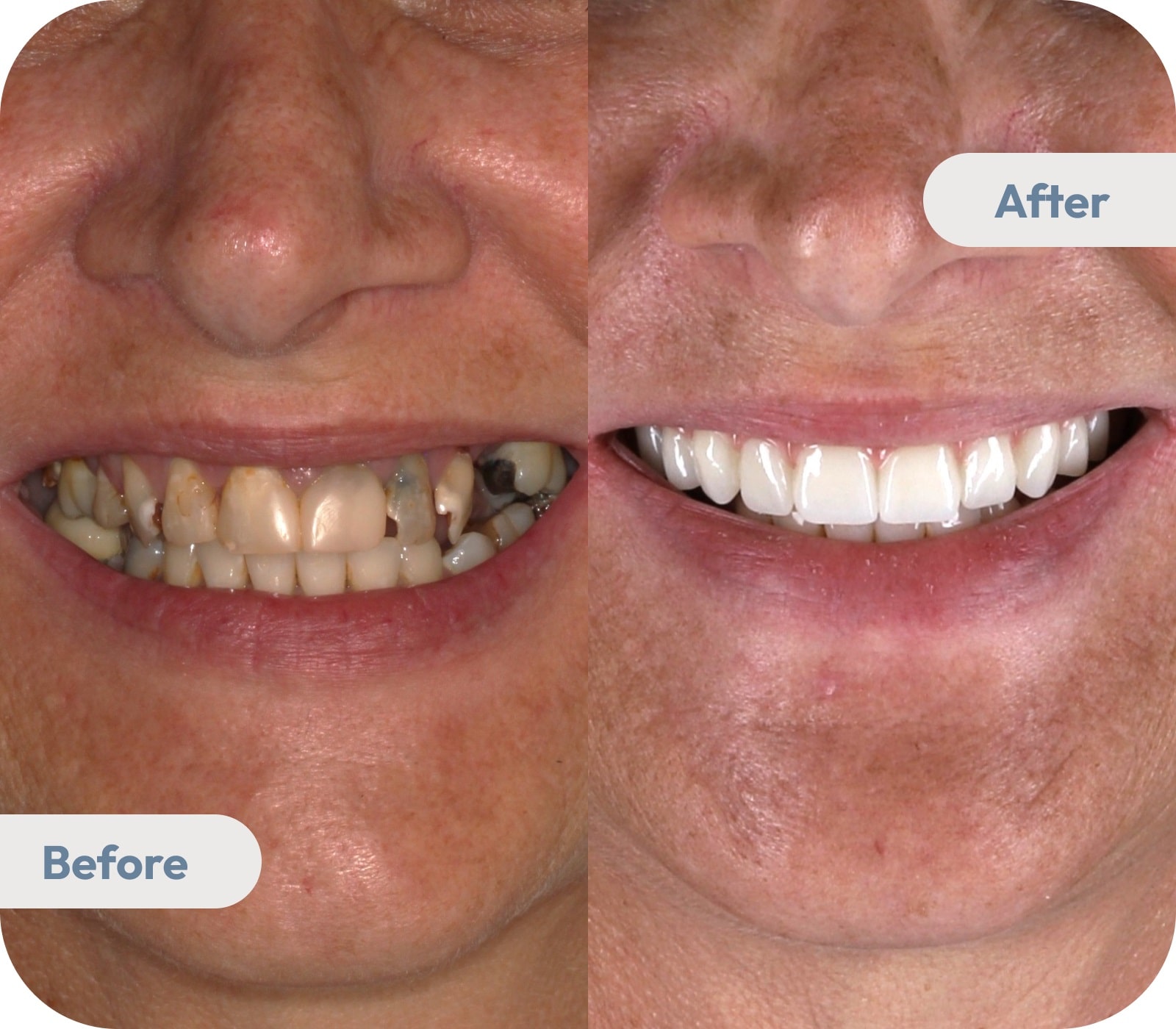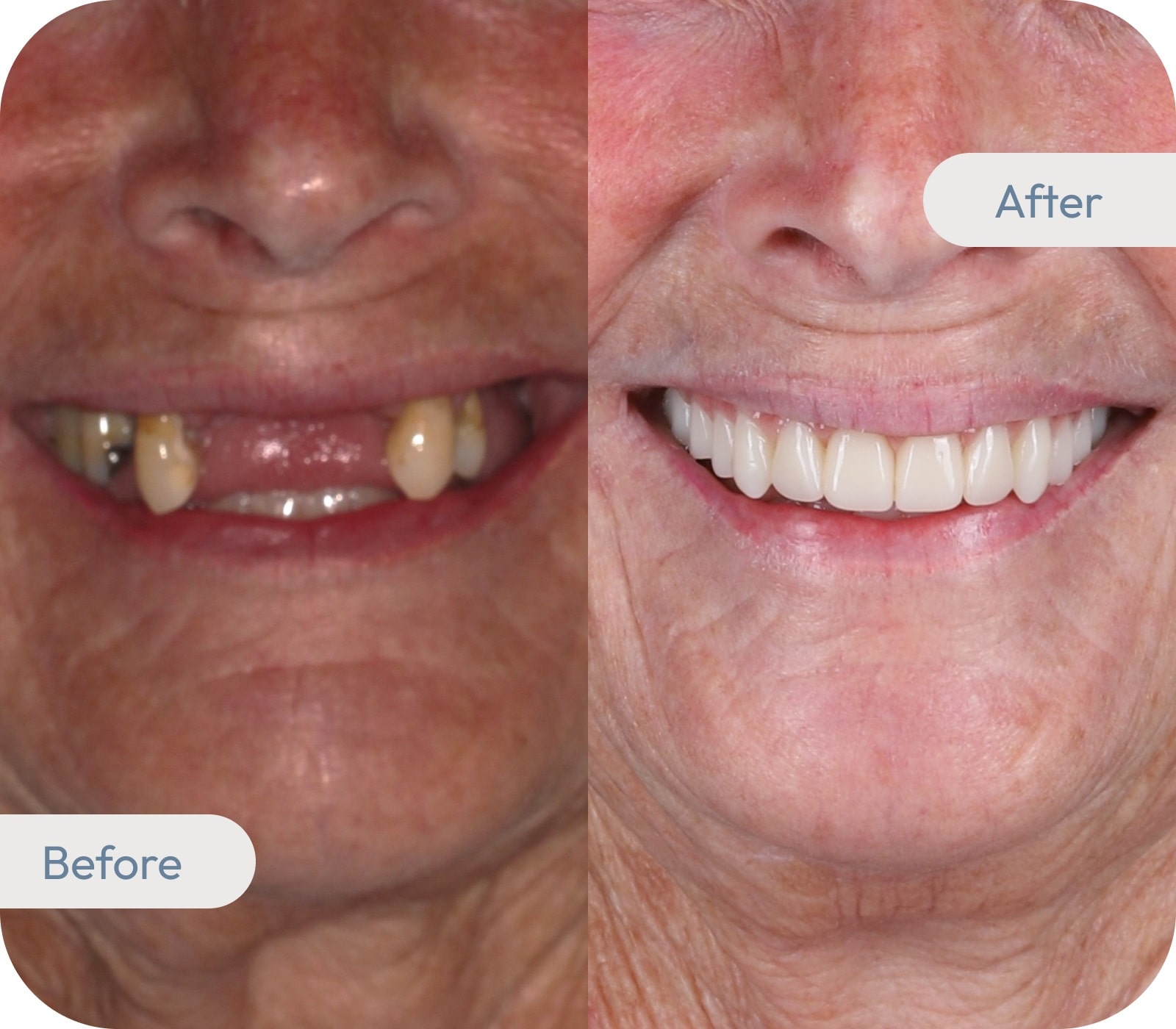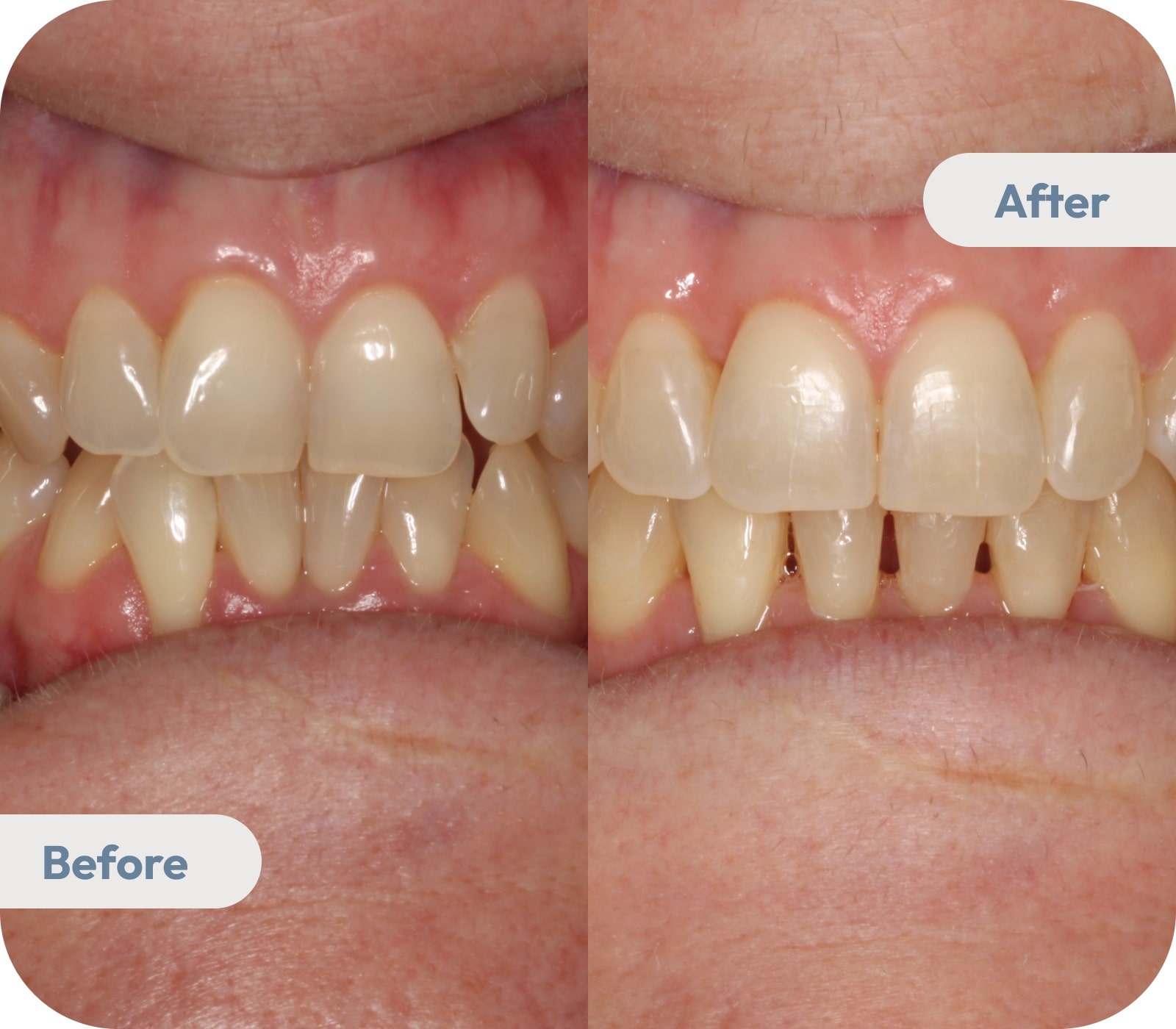Restore Your Smile
Learn About Dental Implants in Bunbury
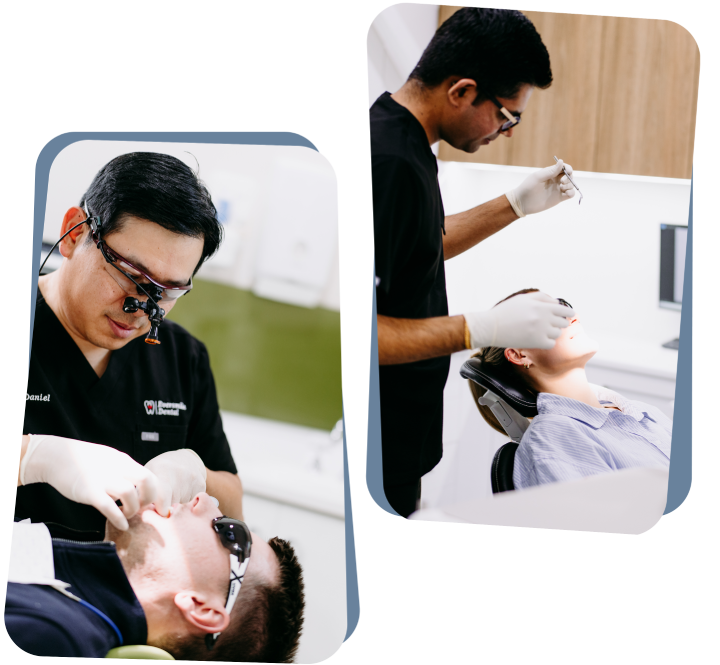
Replacing Missing Teeth With Implants to Support Function
Who May Be Suitable for Dental Implants
- Healthy Gums
Implants require healthy gums to achieve proper healing and long-term stability. Inflammation or gum disease can interfere with the healing process and increase the risk of implant complications over time.
- Adequate Bone
Sufficient bone in the jaw is needed to anchor the implant securely. Low bone density may require bone grafting to provide a stable foundation and support the dental implant placement.
- Fully Developed Jaw
Tooth implants in Bunbury are generally recommended for adults whose jaws have finished developing. Placing implants too early may affect the alignment of surrounding teeth and the position of the implant.
- Good Oral Hygiene
Proper oral hygiene habits reduce the risk of infection and support implant health. People considering implants should brush and floss regularly and be committed to consistent dental care that supports implant health over time.


Understanding Potential Outcomes of Dental Implants
- Bone PreservationDental implants integrate with the jawbone, which may help reduce bone loss in the area where teeth are missing. Over time, this process may also help preserve oral function and support surrounding natural teeth.
- Implant StabilityMissing teeth options in Bunbury, such as dental implants, are securely positioned in the jaw. This placement provides stability during everyday functions like eating and speaking, helping to maintain normal oral function over time.
- Natural AppearanceDental implants are designed to mimic natural teeth in shape and colour. When positioned with precision, they blend with surrounding teeth and provide a natural-looking replacement that supports overall oral function and appearance.
- Maintenance RequirementsWith regular brushing, flossing, and routine dental visits, implants can be maintained similarly to natural teeth. They do not require adhesives or removal for cleaning each night, like removable dentures.
Let’s Talk About Your Dental Implant Treatment Options
If you would like to discuss tooth replacement options, our dental team can guide you through whether dental implants suit your needs during an implant consultation.

Dental Implant Procedure: From Initial Consultation to Recovery
During your first appointment, the dentist providing dental implants in Bunbury will review your dental and medical history, assess your oral health, and take diagnostic images such as CBCT scans. This information helps evaluate bone structure and plan your treatment. You'll also discuss whether implants are clinically suitable for your oral health. No procedures are performed at this stage, as the focus is on assessment, planning, and treatment recommendations.
After your assessment, an individualised treatment plan will be developed based on your clinical oral health assessment. This may involve a single implant, multiple implants, or a full-arch implant-supported option (sometimes known as All-on-X). The discussion will include estimated costs, expected timelines, and any preparatory procedures, such as bone grafting if required. Patients will have the opportunity to ask questions and review information provided during the consultation.
On the day of your procedure, your dentist will review available sedation options appropriate for your procedure. A small titanium post is then carefully placed into the jawbone to act as the implant’s foundation. Some discomfort is expected after placement and can typically be managed with prescribed pain relief medication and aftercare instructions as advised by your dentist. You'll be guided on how to eat, clean the area, and manage healing during the early recovery stage.
After implant placement, the healing process may take several months, often between three and six, depending on individual circumstances. During this time, the bone fuses with the implant through a process called osseointegration, an important factor for long-term stability. You'll attend checkup appointments to monitor progress. Maintaining daily oral hygiene, following aftercare advice, and attending follow-up visits all help support healing and maintain the implant site during this phase.
Once healing is complete, a custom-made crown, bridge, or denture is attached to the implant. Your dentist will evaluate the fit and appearance of the restoration prior to final placement. After placement, you will have follow-up visits to check how the restoration is functioning. Proper maintenance, including regular checkups and good oral hygiene, helps support the ongoing health of the implant and surrounding tissues.
Smile Gallery – Before and After Treatment Examples
*These images display actual patients of our clinic. Every case is different, and treatment outcomes can vary according to individual conditions and needs.
Our Approach to Dental Implants in Bunbury
Dental implants are a treatment option to restore chewing function, support speech, and replace missing teeth. At Eversmile Dental, we provide evidence-based implant care in a professional and supportive environment. Treatment is planned carefully, with long-term oral health as the priority.
-
- Dental Care for the Bunbury Community
- Our team lives and works in Bunbury, and we are committed to supporting the oral health needs of our local community. We provide care that is respectful, professional, and guided by our long-standing connection to the community.
-
- Providing Dental Implant Treatment in Bunbury Since 2006
- For almost two decades, we’ve provided dental implant treatment for patients in Bunbury and the South West. With advanced training and clinical experience, our implant dentists plan and place implants using evidence-based methods. Treatments are designed with a focus on function, appearance, and maintaining oral health over time.
-
- Implant Dentistry Tailored to Patient Needs
- Dental implants are about more than just restoring function—they help restore chewing and speech function and replace missing teeth. At Eversmile Dental, we take a patient-focused approach to care for individuals. We focus on building a strong, healthy foundation, understanding your goals, and providing treatment that fits seamlessly into your lifestyle.
-
- We Listen First—Then We Plan Together
- Every implant treatment is different. That’s why we start with a conversation. We’ll guide you through your options with clear information about possible risks, benefits, and costs. You’ll have time to ask questions, feel heard, and make a decision you’re completely comfortable with.
-
- Ethical and Patient-Centred Care
- We are committed to providing patients with clear information and supporting informed decision-making about treatment. If implants are right for you, we’ll guide you through the process with skill and care. If they’re not, we’ll tell you and offer alternative options.
-
- Digital Technology for Implant Planning and Placement
- From CBCT to digital planning and in-house 3D printing, we use modern technology to assist in the planning and placement of implants. These tools support accurate treatment planning and efficient appointments. You don’t need to travel far for modern dental services—it’s available here in Bunbury.
Explore Our Dental Implant Information Pages
Frequently Asked Questions
How do dental implants work?
Dental implants in Bunbury function like artificial tooth roots. They support replacement teeth by anchoring securely into the jawbone. Here’s how the process works:
- The implant post mimics a tooth root:
It is made of titanium, a material often well accepted by the body. Once placed in the jawbone, it integrates through a natural process called osseointegration. This helps the implant become stable over time. - Bone and implant work together to create stability:
As the bone fuses with the implant, it provides a solid foundation. This can allow the implant to support chewing forces, similar to a natural tooth root. - It supports a visible tooth replacement:
A connector piece, called an abutment, is attached to the implant. This holds a dental restoration, such as a crown, bridge, or denture, which restores oral function and blends with surrounding teeth. - Supports balanced bite function:
Because it’s anchored in bone, the implant helps distribute bite pressure more evenly than removable options. This may help reduce wear on surrounding teeth. - It may help reduce bone loss:
When used regularly for chewing, the implant helps stimulate the jawbone, which may help slow or reduce bone loss that can occur with missing teeth.
Are dental implants painful to get?
How long do dental implants last?
Dental implants are a long-term option for replacing missing teeth, though their lifespan can vary from person to person. The implant post, anchored in the jawbone, may remain functional for many years when supported by oral hygiene and professional care. Outcomes vary between individuals and longevity depends on multiple factors.
The visible part, such as a crown, bridge, or denture, usually lasts 5 to 15 years, depending on how it’s used and maintained. Several factors can influence how long a dental implant and its components last, including the following:
- Oral hygiene habits:
Good oral hygiene, such as daily brushing and flossing, helps reduce plaque and bacteria. This reduces the risk of gum inflammation or infection, which can otherwise compromise the bone supporting the implant. - Lifestyle choices:
Smoking reduces blood flow to the gums, delays tissue healing, and increases the risk of infection in the surrounding area. Research indicates that smoking may increase implant failure risk and contribute to greater bone loss around the implant site. - Chewing and bite pressure:
Regularly chewing hard foods, like ice, popcorn kernels, or hard lollies, can wear down the attached crown or even loosen components over time. Likewise, grinding or clenching your teeth (bruxism) can place excessive force on the implant and surrounding structures. These forces may contribute to early wear or even damage the implant if not managed. - Maintenance and dental visits:
Regular checkups and professional cleans help support long-term implant function and allow early identification of potential issues. These visits allow early identification of dental problems such as gum inflammation, changes in bite, or wear on the restoration, all of which could affect implant stability over time.
How much do dental implants cost?
The cost of dental implants varies depending on individual treatment needs. Several factors may influence pricing. These include the complexity of your case, the number and position of missing teeth, the materials chosen for the final restoration, and the clinic location.
If you’re considering dental implants in Bunbury, a consultation with a dentist can provide an overview of the procedure, discuss possible treatment approaches, and give an estimate of costs based on your oral health assessment.
Do private health funds cover dental implants?
Private health funds may provide benefits for certain parts of dental implant treatment, depending on your policy and the level of cover. Some health funds may not include implant-related services at all, while others may contribute towards specific components of the procedure.
To understand what may be included in your plan, contact your health fund provider directly. They can explain any applicable waiting periods, benefit limits, or eligibility requirements related to dental implant services in Bunbury.
For some patients, partial health fund benefits combined with treatment planning based on clinical assessment may help manage costs. In these cases, flexible payment options for dental implants may also be available, depending on the provider’s arrangements. During a consultation, the dentist can discuss available options and provide an estimate of costs based on your clinical assessment.
What if I’ve already lost bone?
Even if you’ve experienced bone loss in your jaw, you may still be considered for dental implant treatment, depending on clinical assessment. However, additional procedures might be necessary to build a stable foundation. The jawbone relies on regular stimulation from natural tooth roots to maintain its strength. When teeth have been missing for some time, the bone in that area can gradually resorb. Depending on the extent of bone loss, your dentist may recommend one or more of the following options:
- Bone grafting:
This procedure involves adding bone material to areas with low bone density. It may be used to increase bone volume in areas with low density, providing a foundation for implant placement. Healing time varies between patients and may take several months. - Sinus lift:
This procedure may be recommended for upper back teeth when the sinus cavity is close to the implant site. It raises the sinus membrane and adds bone to allow potential implant placement.
What are the alternatives to dental implants?
Dental implants are one option for replacing missing teeth, but other options may be appropriate depending on your oral health and clinical assessment. These alternatives can help replace missing teeth and restore oral function, though each has its advantages and limitations. Here are some commonly used alternatives:
- Dental bridges:
A bridge replaces one or more missing teeth by attaching to the natural teeth on either side of the gap. This type of restoration does not involve placement into the jawbone and may be considered if the surrounding teeth are healthy enough to provide support. - Full or partial dentures:
Removable dentures are used to replace several or all missing teeth in the upper or lower jaw. They sit on the gums and are custom-made to fit the patient’s mouth. Dentures may be considered for patients who prefer a non-surgical approach or who are not suitable for implant placement. - Resin-bonded bridges (Maryland bridges):
This option uses a resin material to bond a replacement tooth to the back of adjacent teeth. It is often used to replace a front tooth and may be suitable when minimal alteration of surrounding teeth is preferred.
What is the recovery time after dental implant surgery?
Recovery after dental implant surgery happens in stages and can vary depending on your general health, the number of implants placed, and whether any additional procedures were required. The following outlines general phases some patients may experience:
- First 24–48 hours:
Swelling, minor bleeding, and discomfort may occur. Your dentist will provide aftercare guidance specific to your situation. - Days 3–7:
Some patients report improvement and can resume light activities. Your dentist may advise when to reintroduce different foods. - Weeks 2–6:
Gum tissue continues to heal. Stitches may dissolve naturally or be removed by your dentist. Recovery progress varies between patients. - Osseointegration phase (3–6 months):
The implant post fuses with bone, an important process for long-term stability. Experiences vary, and your dentist will monitor healing during this stage.
How many implants can I get at one time?
The number of dental implants you can receive in one appointment depends on your oral health, treatment plan, and clinical assessment. In many cases, multiple implants may be placed during a single procedure if bone health, gum condition, and overall health are suitable, as determined by the dentist. Some examples include the following:
- Single-tooth replacement:
One implant is placed to support one missing tooth. This procedure is commonly performed where clinically appropriate. - Multiple-tooth replacement:
Two or more implants can be placed in a single visit to support several individual teeth or a dental bridge. - Full-arch restoration:
In some full-mouth treatments, four to six implants may be placed in one jaw to support a full denture or bridge. This approach may reduce the need for individual implants.
Can I get dental implants if I smoke?
Patients who smoke may be considered for dental implants, but smoking increases risks and will be taken into account during clinical assessment. Your dentist may advise changes to smoking habits before and after treatment, as this can affect healing and risk of complications. They will assess your general and oral health to determine whether implants are appropriate and how to plan safely.
Research has shown that smokers have higher rates of complications, such as peri-implantitis and implant failure, compared to non-smokers. The outcomes worsened with heavier daily cigarette use, suggesting that smoking intensity plays a role in implant success.
Other reviews confirm that smoking is strongly associated with peri-implant diseases and increased bone loss around implants. More frequent smoking was linked to more severe complications over time.
Who should not get dental implants?
Dental implants are a well-established option for replacing missing teeth, but they may not be suitable for everyone. Your suitability depends on your general health, oral condition, and any underlying medical issues. A thorough consultation is needed to determine whether implants are appropriate for your situation. People who may not be suitable for dental implants include the following:
- Individuals with uncontrolled medical conditions:
Health conditions such as poorly managed diabetes can affect how the body heals after surgery. Poorly managed diabetes can affect healing after surgery and may increase the risk of implant failure. - Patients with immune disorders or undergoing immunosuppressive therapy:
Conditions like autoimmune diseases (e.g., lupus, rheumatoid arthritis, Sjögren’s syndrome) or medications that suppress the immune system can interfere with healing. These conditions or treatments may increase the risk of inflammation around the implant and bone loss over time. - People with insufficient bone volume:
Dental implants require sufficient healthy jawbone for proper support. If bone density is low or the jawbone has diminished due to prolonged tooth loss, the implant may not have sufficient stability for placement without additional procedures. In such cases, bone grafting may be recommended to rebuild the area and create a more secure foundation before implant placement. - Patients who have received radiation therapy to the head or neck:
Radiation to the head or neck can reduce blood flow to the jaw, which may increase the risk of complications such as infection or implant failure, particularly if implants are placed soon after treatment.
Children and teens with developing jaws: Dental implants are not generally recommended for patients whose jawbones are still growing. Implants placed too early may shift out of alignment as the jaw continues to develop. Your dentist can assess growth and recommend when implant placement may be suitable.
What is the success rate of dental implants?
Dental implants are considered a well-established option for replacing missing teeth, but outcomes vary between patients. Research suggests that many implants can function for many years, though results depend on patient health, implant location, and ongoing care. Long-term outcomes are more likely when treatment is carefully planned and supported by regular professional care.
Do dental implants ever fail or need to be replaced?
Dental implants are designed to be a long-term option, but in some cases, they may fail or need replacement. While this is uncommon, certain factors can affect how long an implant remains functional. Awareness of these factors can help patients maintain their implants over time. Common reasons why dental implants may fail or need replacement include the following:
- Infection affecting the bone or gums:
Infections such as peri-implantitis can damage the bone and gum tissue supporting the implant. This condition is often linked to plaque build-up around the implant and can lead to loss of support if not addressed early. - Insufficient healing after surgery:
In some cases, the implant may not properly integrate with the jawbone. This is known as early implant failure and may occur in the weeks or months following placement. It may require removal and reassessment. - Bite pressure or teeth grinding:
Excessive force on an implant, whether from bruxism (teeth grinding) or bite misalignment, can compromise its stability. Over time, this may loosen the implant or damage the restoration attached to it.
Wear and tear on the restoration: The implant post can function for many years. The visible restoration, such as a crown, bridge, or denture, may need to be replaced after several years due to wear or changes in the bite.
What are the pros and cons of dental implants?
Dental implants offer many benefits, but like all treatments, they also have limitations. Understanding both the advantages and considerations can help you understand when they may or may not be appropriate, depending on clinical assessment.
Pros of dental implants:
- Natural look and feel:
Implants are designed to function like teeth. The crown is shaped and shaded to resemble surrounding teeth. - Stable and secure:
Because they’re anchored into the jawbone, which may provide stability during eating and speaking compared with removable dentures. - Helps preserve bone:
Implants stimulate the jawbone, which may help slow bone loss that occurs after tooth removal. - No impact on nearby teeth:
Implants do not usually rely on adjacent teeth for support, which may help preserve natural tooth structure.
Cons of dental implants:
- Requires multiple appointments:
Implant treatment is not completed in a single visit. The process generally takes several months, including a healing stage after implant placement. Timelines vary between patients. - May involve additional procedures:
Some patients may need preparatory treatments, such as bone grafting or sinus lifts, to support the implant. These add to the time, complexity, and cost. - Continuous maintenance is essential:
While the implant post itself doesn’t decay like a natural tooth, it can still develop problems, such as peri-implantitis. Regular checkups and good oral hygiene may help reduce the risk of such problems. - Possible complications:
Although rare, issues such as nerve sensitivity, implant mobility, or inflammation around the site can occur. This can lead to bone loss around the implant if not addressed early.
Various Payment Options Available
Book Your Appointment Online or Call Our Bunbury Dental Clinic
Book an appointment with our dentist in Bunbury to discuss your oral health needs. We provide tailored dental treatments and clear information to support informed decisions about your dental care.
